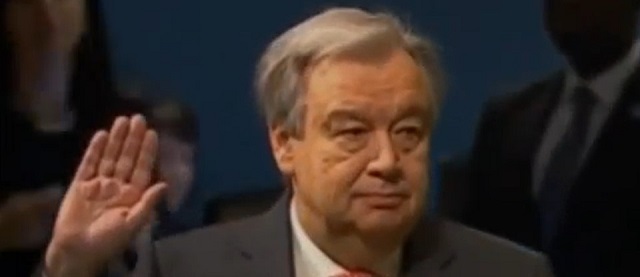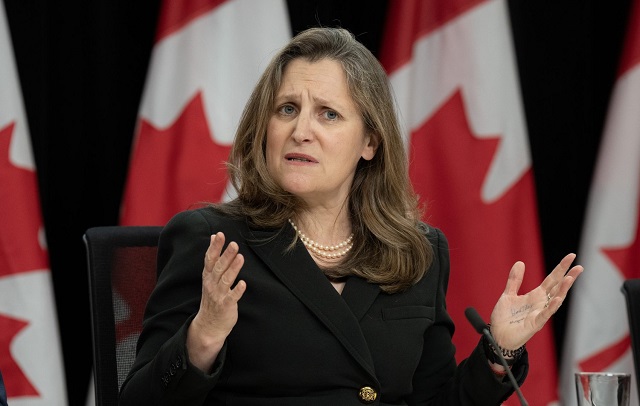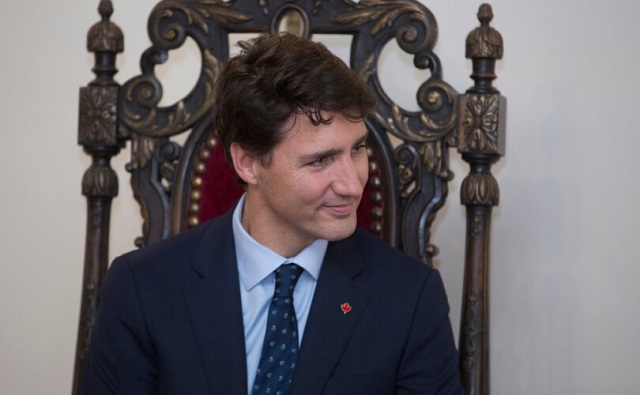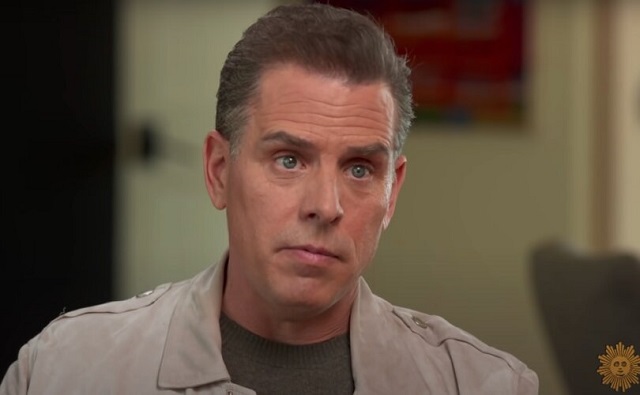COVID-19
Biden’s Navy secretary says he has ‘no regrets’ about firing 5,000+ unvaxxed sailors, Marines

Navy Secretary Carlos Del Toro
From LifeSiteNews
“You’re firing qualified people who are well-trained, and you sit here so smugly [and] act like none of that has any impact on the readiness of our Navy.”
The secretary of the U.S. Navy told senators that he has “no regrets” about the firing of thousands of sailors and Marines who declined to take the COVID-19 shots.
During a Capitol Hill hearing, Senator Eric Schmitt (R-Missouri) pressed Secretary Carlos Del Toro on the impact that both DEI (“Diversity, Equality, and Inclusion”) training courses and COVID jab mandates have had on Navy recruitment and pushed back against the Navy’s prioritization of “climate change” over keeping pace with America’s adversaries.
Schmitt asked Del Toro about the 1,878 sailors and the 3,746 Marines who were fired for not taking the COVID shot: “Do you regret that?”
“I have no regrets,” declared the Navy chief.
“You have recruitment challenges,” said Sen. Schmitt. “You’re firing qualified people who are well-trained, and you sit here so smugly [and] act like none of that has any impact on the readiness of our Navy.”
Del Toro, a Biden appointee, added that “we recontacted 3,500 of the 4,800 people who were fired. You know how many actually decided to come back to the Navy? Two.”
“Shocker,” declared Schmitt, who indicated that it was no wonder the disenfranchised personnel all but unanimously chose not to return because of “the level of disrespect they received from their government.”
The Secretary of the Navy says to Sen. @Eric_Schmitt that he has "no regrets" about firing the thousands of service members who refused to take the covid vax and then smugly says that none of them wanted to come back to the Navy when contacted as if that's a good thing. pic.twitter.com/MzMv7R4qMu
— Greg Price (@greg_price11) May 16, 2024
The firings have come at a time when the Navy and other branches of the military have been experiencing worsening recruitment challenges.
The Navy has attained less than 70% of its recruitment goal for the first half of 2024, according to a statement from Sen. Schmitt’s office, and is expected to be short roughly 6,700 sailors from its 2024 recruitment goal of 40,600.
In 2023, the Navy fell short of its recruiting goal by 20%.
Sen. Schmitt suggested that the COVID-19 jab firings aren’t the only reason that recruiting is down.
“Do you believe that the obsession that the political leadership has right now with DEI has helped or hurt recruiting efforts?” Schmitt asked Del Toro.
“I don’t think DEI has hurt recruiting efforts at all,” claimed the Navy Secretary.
Schmitt went further and suggested that the Navy is indoctrinating its personnel through its DEI 101 materials, promoting “cultural Marxism.”
Last June, Secretary Del Toro hosted a Department of the Navy DEI Summit with senior Navy and Marine Corps leaders.
“In order to maintain our strategic edge, the Navy and Marine Corps team must operationalize innovative and cohesive initiatives, rooted in DEI’s goals,” insisted Secretary Del Toro at the DEI summit, according to Sen. Schmitt’s office.
“The Navy’s DEI 101 online training facilitator guide focuses on the need to nurture a culture that ‘values diversity and emphasizes inclusion,’” despite the fact that a recent Department of Defense survey reported that “just 2% of the workforce lists racism as a problem,” noted Schmitt’s staff.
Schmitt’s office also noted that the Navy ceded the title of the world’s largest Navy to Communist China’s People’s Liberation Army Navy (PLAN) in 2020 and that currently, the Navy is retiring more ships than it is building, shrinking the Navy as the PLAN continues to grow.
Brownstone Institute
WHO IHR Modifications Were Illegally Approved

From the Brownstone Institute
By
The 77th meeting of the World Health Assembly concluded Saturday, June 01, 2024. This particular Assembly meeting, the first following the Covid crisis, failed to achieve agreement on the wording or passage of a proposed World Health Organization (WHO) pandemic “treaty,” also referred to as an “agreement.” In parallel to the treaty, the World Health Assembly (in close cooperation with the US HHS/Biden administration) has been working on “updating” the existing (2005) International Health Regulations (IHR) agreement, which historically functioned as a voluntary accord establishing international norms for reporting, managing, and cooperating in matters relating to infectious diseases and infectious disease outbreaks (including “pandemics”).
In blatant disregard for established protocol and procedures, sweeping IHR amendments were prepared behind closed doors, and then both were submitted for consideration and accepted by the World Health Assembly quite literally in the last moments of a meeting that stretched late into Saturday night, the last day of the meeting schedule.
Although the “Article 55” rules and regulations for amending the IHR explicitly require that “the text of any proposed amendment shall be communicated to all States Parties by the Director-General at least four months before the Health Assembly at which it is proposed for consideration,” the requirement of four months for review was disregarded in a rush to produce some tangible deliverable from the Assembly. This hasty and illegal action was taken in direct violation of its own charter, once again demonstrating an arbitrary and capricious disregard of established rules and precedent by the WHO under the leadership of the Director-General.

There was no actual vote to confirm and approve these amendments. According to the WHO, this was achieved by “consensus” among this unelected insider conclave rather than a vote; “Countries agreed by consensus to amend the International Health Regulations, which were last changed in 2005, such as by defining the term “pandemic emergency” and helping developing countries to gain better access to financing and medical products,” a WHO statement reported, continuing that “countries” agreed to complete negotiations on the pandemic accord with the year, “at the latest.”
Representatives from many WHO member nation-states were not in the room, and the ones that were there were encouraged to keep quiet. After the non-vote, there was giddy celebration of this achievement, clearly demonstrating the lack of somber maturity, commitment to both rules and careful diplomatic consensus, and absence of serious intent and purpose warranted by the topic.
This was clearly an insider clique acting unilaterally to circumvent normal process and mirrors a similar process used to confirm the re-appointment of Tedros Ghebreyesus to the Director-General position. This unelected WHO clique of “true believers” clearly signals that it believes itself above any requirements to comply with established international norms and standards, including its own. By their actions you will know them; the giddy arrogance of these actions predicts that WHO decision-making will continue to be arbitrary, capricious, and politicized, and will continue to reflect the will of various insider interest groups (and nation-states) rather than anything even approximating a broad-based international consensus.
Here in the United States, these unilateral actions, backed by an executive branch and bureaucracy that repeatedly demonstrates a deep disdain for the rule of law and the US Constitution, may require that individual States pass legislation to reject the WHO Amendments to IHR based on the illegality of the process and violation of Article 55. Similar discussions are occurring in the UK and across many WHO member states, adding momentum to the emerging WHO-exit movement.
For those not familiar, the current WHO Director-General Tedros Adhanom Ghebreyesus is neither a physician nor a trained public health or epidemiology specialist, but rather is an Ethiopian microbiologist, malaria researcher, and politician.
The hastily approved IHR consolidates virtually unchecked authority and power of the Director-General to declare public health emergencies and pandemics as he/she may choose to define them, and thereby to trigger and guide the allocation of global resources as well as a wide range of public health actions and guidances. These activities include recommendations relating to “persons, baggage, cargo, containers, conveyances, goods and postal parcels,” but based on earlier draft language of proposed IHR amendments and the WHO pandemic “accord” are likely to extend to both invasive national surveillance and mandated public health “interventions” such as vaccines and non-pharmaceutical interventions such as social distancing and lockdowns. Not to mention the continuing weaponization of public health messaging via censorship of dissenting voices and liberal use of the fear-based tactics known as information or psychological bioterrorism to mobilize public opinion in favor of WHO objectives.
The IHR amendments retain troubling language regarding censorship. These provisions have been buried in Annex 1,A.2.c., which requires State Parties to “develop, strengthen and maintain core capacities…in relation to…surveillance…and risk communication, including addressing misinformation and disinformation.”
The requirement that nations “address” “misinformation and disinformation” is fraught with opportunities for abuse. None of these terms is defined in the document. Does “addressing” it mean censoring it, and possibly punishing those who have offered divergent opinions? We have already seen how doctors and scientists who disagreed with the WHO narrative under Covid-19 were censored for their views – views that turned out to be true. Some who offered protocols not recommended by the WHO even had their licenses to practice medicine threatened or suspended. How much worse will this censorship be if it is baked in as a requirement of the International Health Regulations?
The “surveillance” requirement does not specify what is to be surveilled. The IHR amendments, however, should be read together with the proposed Pandemic Treaty, which the WHO is continuing to negotiate. Article 5 of the most recent draft of the Treaty sets forth the “One Health Approach,” which connects and balances human, animal, plant, and environmental health, giving a pretext for surveillance on all these fronts.
Meanwhile, Article 4: Pandemic Prevention and Public Health Surveillance, states:
The Parties recognize that environmental, climatic, social, anthropogenic [climate change caused by people], and economic factors increase the risk of pandemics and endeavor to identify these factors and take them into consideration in the development and implementation of relevant policies…” Through the “One Health” approach, the WHO is asserting its authority over all aspects of life on earth, all of which are apparently to be surveilled.
Regarding the IHR, Article 35 details the requirements of “Health Documents,” including those in digital format. The system of digital health documents is consistent with, and in my opinion a precursor to, the Digital IDs described by the World Economic Forum. According to the attached WEF Chart, people will need a Digital ID to:
- Access healthcare insurance and treatment
- Open bank accounts and carry out online transactions
- Travel
- Access Humanitarian Services
- Shop and conduct business transactions
- Participate in social media
- Pay taxes, vote, collect government benefits
- Own a communication device [such as a cell phone or a computer]
In other words, individuals will need Digital IDs to access almost every aspect of civilized society. All of our actions, taken with the use of Digital IDs, will be tracked and traced. If we step out of line, we can be punished by, for example, being severed from our bank accounts and credit cards – similar to what happened to the Canadian Truckers. Digital IDs are a form of mass surveillance and totalitarian control.
These Digital IDs are currently being rolled out by the World Health Organization in collaboration with the European Union. Most of us will agree that this is not the way forward to make the world safer but rather is a path leading towards a techno-totalitarian hellscape.

To support decision-making, the IHR authorizes the Director-General to appoint an “IHR Expert Roster,” an “Expert Committee” selected from the “IHR Expert Roster,” as well as a “Review Committee.” However, although the committees may make recommendations, the Director-General will have final decision authority in all relevant matters.
To further illustrate the point, the revised IHR directs that “The Director-General shall invite Member States, the United Nations and its specialized agencies and other relevant intergovernmental organizations or nongovernmental organizations in official relations with WHO to designate representatives to attend the Committee sessions. Such representatives may submit memoranda and, with the consent of the Chairperson, make statements on the subjects under discussion. They shall not have the right to vote.”
The approved amendments redefine the definition of a “Pandemic Emergency;” include a newly added emphasis on “equity and solidarity;” direct that independent Nations (“States Parties”) shall assist each other to support local production capacity for research, development, and manufacturing of health products; that equitable access to relevant health products for public health emergencies including pandemics shall be facilitated; and that developed nations shall make available “relevant terms of their research and development agreements for relevant health products related to promoting equitable access to such products during a public health emergency of international concern, including a pandemic emergency.”
The amended IHR also directs that each nation (“States Parties”) shall “develop, strengthen and maintain core capacities” for “preventing, preparing for and responding to public health risks and events,” including in relation to:
- Surveillance
- On-site Investigations
- Laboratory diagnostics, including referral of samples
- Implementation of control measures
- Access to health services and health products needed for the response
- Risk communication, including addressing misinformation and disinformation
- Logistical assistance
The amended IHR also includes copious new language, terms, and conditions relating to the responsibilities of “States Parties” to perform surveillance and transparent timely reporting of information relating to infectious disease outbreaks. This includes multiple references to information gathering, sharing, and distribution, including the need to counter the distribution of “misinformation and disinformation”.
There is the appearance that some of this new text may be informed by the recent failure of China (PRC/CCP) to provide timely and complete reporting of events and information relating to the initial SARS-CoV-2 outbreak. Unfortunately, this failure to inform in a timely manner was not unique. There is a long history of repeated, chronic problems with transparent national reporting of infectious disease outbreaks. A variety of adverse economic and political impacts are associated with infectious disease outbreaks, and this creates a strong incentive for both local politicians and public health officials to minimize initial reporting of unusual infectious disease signals or findings.
The amended IHR frequently refers to “scientific principles as well as the available scientific evidence and other relevant information” as a key factor in guiding decision-making. However, the IHR does not acknowledge the diversity of opinion surrounding what are considered sound and valid “scientific principles” or “scientific evidence,” and there is no indication that the World Health Assembly or the WHO recognizes how readily “scientific principles” and “scientific evidence” were manipulated or otherwise biased during prior public health crises, and the likelihood that this will continue to happen on a regular basis unless reforms designed to respect diversity of opinion and interpretation are implemented. There seems to be a complete lack of self-awareness of the rampant groupthink that chronically characterizes WHO decision-making during both the Covid crisis as well as prior public health events of concern.
Although many of these revisions are generally reasonable and aligned with good and practical international public health norms and actions, and in some cases are greatly improved relative to prior draft language, the recent history of WHO mismanagement and actual WHO spreading and amplification of mis- and disinformation regarding SARS-CoV-2 virology, immunology, and pathophysiology, pharmaceutical and non-pharmaceutical interventions for SARS-CoV-2 raise legitimate concerns about how these words will be interpreted and implemented.
Furthermore, the pattern of repeated arbitrary, capricious, and scientifically unjustifiable decisions regarding Covid and monkeypox suggests that expanding the authority of either the Director-General or the WHO is unwise at this time. Rather, more mature, thoughtful, and prudent evaluation of that recent experience argues for reduced rather than expanded authority, and for a more decentralized, multilateral model for the management of global and regional public health risks and events. The world does not need more condescending authoritarianism from those entrusted to facilitate international cooperation in public health.
Just speaking in terms of best practices, it is clearly inappropriate to rely on administrators with such a vested personal interest in the outcome to be so intimately involved in crafting sweeping international policy changes. This revision process should have been managed by an independent commission of seasoned, objective experts who were carefully vetted to minimize potential conflict of interest.
The hasty willingness to bypass its own charter by unilaterally and arbitrarily jamming these changes through on extremely short notice raises further concerns regarding the reliability, maturity, and competency of the WHO, the World Health Assembly, and the Director-General to provide the calm, steady hand so sorely needed after the mismanaged major public health catastrophe and global trauma which all have experienced over the last four years.
The world, its inhabitants, those who work to provide medical care, and the overall world health enterprise deserve better.
COVID-19
Fraser Valley churches challenge Dr. Bonnie Henry as dishonest and discriminatory in court

Provincial Health Officer Dr. Bonnie Henry
From the Justice Centre for Constitutional Freedoms
These churches submitted an accommodation request to gather for in-person worship services, but their request received no response for several weeks. At the same time, however, Dr. Henry had been responding within one or two days to accommodation requests from Orthodox synagogues, granting them permission to meet in-person.
The Justice Centre for Constitutional Freedoms announces that Fraser Valley churches are arguing, in a 10-day hearing in Chilliwack, BC, that BC Provincial Health Officer Dr. Bonnie Henry granted preferential treatment to some faith groups over others when considering requests to be exempted from her total ban on all in-person worship services. The churches argue that their prosecution for violating public health orders is an abuse of process and ought to be stayed. Lawyers for the churches will present evidence that Dr. Henry acted dishonestly and in bad faith while banning in-person worship services in 2020 and 2021, granting immediate exemptions to Jewish synagogues while ignoring exemption requests from Muslims and Christians. The hearing will at the Chilliwack Law Courts, will conclude on Thursday, June 27.
In November 2020, Dr. Henry banned in-person worship services while allowing bars, restaurants, gyms, and salons to remain open for in-person services.
Along with several other churches in the Fraser Valley, the Free Reformed Church in Chilliwack, BC, re-opened its doors in 2020 and 2021 while simultaneously complying with health orders regarding face masks, hand washing, social distancing, etc. In January 2021, the Free Reformed Church, along with two other churches, filed a constitutional challenge to the prohibition on in-person worship services. After filing the challenge, these churches submitted an accommodation request to gather for in-person worship services, but their request received no response for several weeks. At the same time, however, Dr. Henry had been responding within one or two days to accommodation requests from Orthodox synagogues, granting them permission to meet in-person.
Two business days before the Court was scheduled to hear the constitutional challenge, Dr. Henry finally granted the Free Reformed Church and two other churches limited permission to gather outdoors, while refusing them permission to gather indoors, claiming that indoor gatherings were too risky. However, earlier that same week, Dr. Henry had granted all Orthodox synagogues in the province permission to gather indoors; that same week, mosques seeking permission to gather in-person received no accommodation.
On March 18, 2021, BC Supreme Court Chief Justice Christopher Hinkson dismissed the Free Reformed Church’s challenge, in part because Dr. Henry had granted them permission to meet outdoors. The BC Court of Appeal upheld Chief Justice Hinkson’s decision, and the Supreme Court of Canada subsequently refused to hear the case.
Meanwhile, Pastor Koopman of the Free Reformed Church, and other churches and pastors, were prosecuted by the Crown in BC Provincial Courts. On November 8, 2022, Pastor Koopman was found guilty of hosting an in-person worship service in December 2020.
On April 14, 2023, Pastor Koopman submitted an Application to the Provincial Court of British Columbia, alleging that the discriminatory actions of the Provincial Health Officer had made the continuation of his prosecution offensive to societal notions of fair play and decency and had brought the administration of justice into disrepute. In response, on May 10, 2023, the Crown argued that the abuse-of-process application should not proceed to an evidentiary hearing, and that Dr. Henry and Deputy Provincial Health Officer Dr. Brian Emerson should not be subpoenaed as witnesses in the case.
For three days, from May 15–18, 2023, Judge Andrea Ormiston heard arguments on whether the abuse of process Application could proceed to an evidentiary hearing. On September 6, 2023, Judge Ormiston denied the Crown’s Application to summarily dismiss Pastor Koopman’s abuse-of-process Application because she found that there was “some evidence that the Provincial Health Officer preferred some faith groups over others.” Judge Ormiston found that, under the circumstances, it was not “manifestly frivolous” to think that the continued prosecution of Pastor Koopman “risks undermining the integrity of the judicial process.” However, Judge Ormiston declined to allow Dr. Henry or Dr. Emerson to be subpoenaed on the matter.
“When government officials, including public health officers, exercise coercive government power, it is essential that they use that power honestly, in good faith and without discrimination against people based on irrelevant consideration, including their particular religious faith,” stated lawyer Marty Moore. “We believe that the evidence in this case will show that the Provincial Health Officer’s treatment of faith communities during 2020 and 2021 violated the rule of law and that the prosecution of pastors and churches in this context undermines public confidence not only in our public health officials, but also in our justice system.”
-

 Energy2 days ago
Energy2 days agoUN Secretary-General Ramps Up Tiresome Climate-Fright Rhetoric One More Time
-

 Uncategorized2 days ago
Uncategorized2 days agoTax Freedom Day – Canadian families face larger tax burden than last year
-

 International2 days ago
International2 days agoHunter Biden May Never Have Been On Trial Were It Not For Whistleblowers And No-Nonsense Judge
-

 Bruce Dowbiggin2 days ago
Bruce Dowbiggin2 days agoFlight To The Right: Clever Is So Yesterday
-

 International22 hours ago
International22 hours agoWilliam ‘Lia’ Thomas loses challenge to rule banning him from women’s Olympic contests
-

 COVID-1919 hours ago
COVID-1919 hours agoFraser Valley churches challenge Dr. Bonnie Henry as dishonest and discriminatory in court
-

 Economy20 hours ago
Economy20 hours agoCarbon tax costs Canadian economy billions
-

 Agriculture16 hours ago
Agriculture16 hours agoDiet, Injections, and Injunctions








